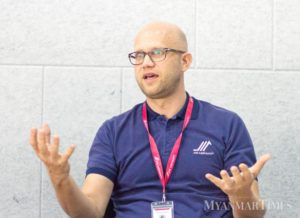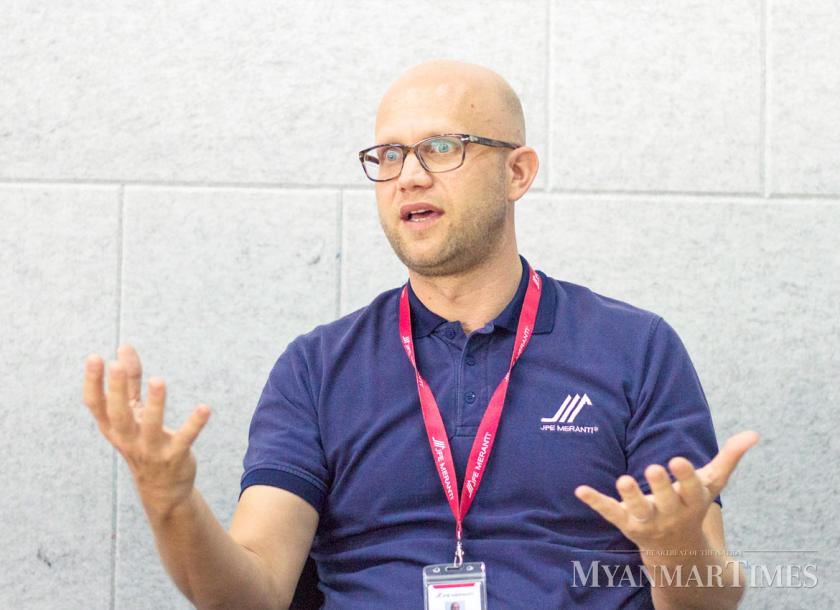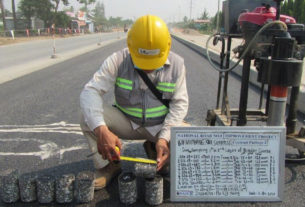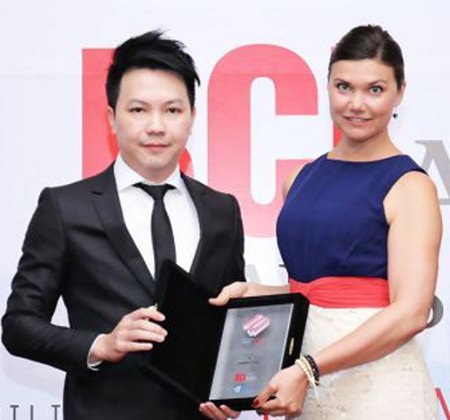
JFE Meranti steel company forges ahead in Myanmar market
Even though there’s been a drop in demand for the company’s coated steel products due to a slowing of construction activities, he said the COVID-19 outbreak would lead to a move away from relying on steel imports and global supply chains and toward more domestic production.
“In terms of financial planning, we are preparing for a prolonged slowdown. Once COVID-19 is under control, we hope for decision-makers to actively support domestic infrastructure and construction activities to get the economy quickly back on track,” he said.
In a recent interview, Langendort shared his views on the local steel industry and JFE Meranti’s plans to expand in an industry that has until now mostly relied on imports:
How much has JFE Meranti invested in Myanmar and why?
The construction sector of Myanmar has the potential for 10 percent annual growth, so there will be strong demand for construction materials. There are many youths in the country, so the economy will grow. Also, Myanmar is bordered by countries with strong economies, and Myanmar people focus on good quality products and environmental conservation. I prefer Myanmar to other countries, so I chose to invest as not many people run steel businesses here. Cheap imports are the main challenge for us. Our investment exceeds US$90 million (K126.1 billion).
What raw materials do you import and what do you make?
We mainly import raw materials from other Southeast Asian countries. We plan to import from South Korea, Taiwan and Japan. It has taken about 12 months to be familiar with the machines and we can start operations. We can produce 90 tonnes to 100 tonnes of decking sheet a day, and will start another line by the end of this year. We will achieve full production within two years.
What other products do you plan to make?
We make multi-coated sheets that can be used as roofing, and we also make bars in 2-mm thickness that can be used as cross beams. They are of good quality, as they are used in construction. Our products don’t contain lead, so they aren’t harmful to people. When used as roofing, the rainwater flowing off of them is safe to drink.
We now make ALZU and GIZU. ALZU includes ALZU 10 and ALZU 7. ALZU 7 offers nine-year warranty, while ALZU 10 has a 12-year warranty. We may introduce a new product in July, and another type of product at the end of this year. So there will be four products altogether.
What effect does the unstable exchange rate have on your business?
When the Myanmar kyat strengthens, we can buy raw materials at a cheap price, so we can resell to customers cheaply. However, we face a competitive market when import prices drop. Our financial management teams work to ensure that the fluctuating exchange rate does not affect us much and that we can be as fair as possible to our customers.
How competitive is Myanmar’s steel market?
The main problems we face are low-priced and low-quality imports. Steel products used in construction in Myanmar come from other countries, but low-quality ones don’t last long. It’s particularly important to know this when we build our own houses, so that we choose good quality products for long-term benefits. Difficulties can arise from importing products, because local factories can produce any quantity to meet demand.
What progress has the company made in its plan to export to other countries?
We will choose regular customers to join us as export partners. If there is strong local demand, we will expand the factory. We have linked with partners to export.
We’ve started sending out orders to three countries, both Asian and European, and will send more if they like the quality of the products. We’ll choose partners that we can work with in the long term.
How are the working and environmental conditions at your factory?
We have around 240 workers, 85pc of them locals, and we plan to increase that number to 90pc and above. They are trained to avoid dangers in the workplace, and every department is focussed on safety. Our products are durable, don’t normally need to be disposed of, and don’t contain lead. Our production process tries to reduce harm to people and the environment.
Thilawa Industrial Zone is of world-class standard and has a good drainage system. Our wastewater treatment system is so good that the water can be reused. We use a great amount of heat, but we don’t let it out of the factory. Instead we use it for other purposes, which is less harmful to the environment and reduces energy use. – Translated
Source: https://www.mmtimes.com/news/jfe-meranti-forges-ahead-myanmar-steel-market.html


